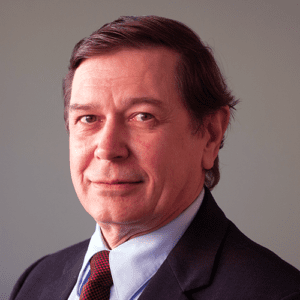
The purpose of this blog is to stimulate thought and discussion about important issues in healthcare. Opinions expressed are those of the author and do not necessarily express the views of CMDA. We encourage you to join the conversation on our website and share your experience, insight and expertise. CMDA has a rigorous and representative process in formulating official positions, which are largely limited to bioethical areas.
Better Science Without the Ideology of Fetal Tissue
January 10, 2019
by David Prentice, PhD
The debate about use of aborted fetal tissue for research continues, usually characterized as pitting science against ideology. The characterization is accurate, but the stereotypes of who fits in the categories are not. Published science documents the advantages of the numerous NON-fetal tissue research models and techniques, while ideologues claim a continued need for aborted fetal tissue use, by mischaracterizing the science and history, and by ignoring or dismissing outright, modern scientific methods and literature. Indeed, many scientists and medical researchers oppose the use of aborted fetal tissue, yet their voices are rarely heard.
Some of the facts were heard publicly in a recent House subcommittee hearing that looked especially at alternatives to fetal tissue. The failures of fetal tissue and the successes of numerous alternatives were extensively documented with abundant literature references. By contrast, the ideology of fetal tissue research makes claims that are often inaccurate and even unscientific. Here are just a few examples.
The ideology of fetal tissue research often claims that numerous vaccines were created using aborted fetal tissue. This claim stretches the science to a point of inanity. A few vaccines were initiated in the 1960s and 1970s using two historical cell lines in particular (WI-38 and MRC-5) that were each derived from a single induced abortion, and those historical cell lines still see some limited use for virus growth for a few vaccines. But a cell line is not a tissue. Once cells are established in culture as a cell line (a matter of hours to days), the cells can be propagated in the laboratory for years or even decades, and there is no need to go back and obtain fresh tissue or continually re-initiate the cell line. The derivation source leaves an ethical taint, but the cell lines are not fresh tissue. Thus, saying that polio vaccine was produced in fetal tissue is an unscientific falsehood. By the same token, HeLa cells were also used in the past to make polio vaccine, but it is equally absurd to claim that polio vaccine was produced in human cervical carcinoma tissue. The original Salk and Sabin vaccines were created using monkey tissue.
Proponents of the fetal tissue ideology have also claimed other vaccines were developed using aborted fetal tissue, including tetanus and diphtheria. But these are bacterial infections, and such bacterial cells are not grown in human cells or tissues. This falsehood, at one time circulated by the American Society for Cell Biology but then “corrected,” starkly illuminates the unscientific ideological propensity of such claims.
Fetal tissue ideology also claims that there are no alternatives to use of fetal tissue to make humanized mice, for study of infectious diseases, drugs against HIV, immunotherapies, etc. These mice are constructed to contain a human immune system by adding human cells and tissues. While in the past many such mice were made using aborted fetal tissue, requiring an ongoing harvest and sourcing of aborted tissue, most humanized mice today are made using umbilical cord blood stem cells, other types of adult stem cells and postnatal tissues. As just one example among several, one type of humanized mouse that supposedly requires aborted fetal thymus can instead be constructed utilizing neonatal thymus removed during pediatric cardiac surgeries. According to the published paper on the technique, use of neonatal thymus produces as complete an immune system as that using aborted fetal thymus, more clinically relevant, and with 50 times as many mice produced per tissue sample. The authors note that when looking at the clinically relevant data, “the NeoThy humanized mouse model is a viable alternative to fetal tissue humanized mice.”
As just one other example, the fetal tissue ideology still at times looks to use of fetal tissue to cure diseases. Yet history and the published results have shown repeatedly that fetal tissue has not cured a single condition. Rather, fetal tissue transplants have a history of making patients worse with disastrous side effects. In contrast, adult stem cell transplants have been used to treat well over one million patients for dozens of conditions, including for stroke and multiple sclerosis.
Many more examples of the failures of fetal tissue ideology, and the success of numerous modern scientific alternatives, are available. The science and the ethics are on the side of these alternatives, and they point the way to wise use of taxpayer funds that put the patient first.

